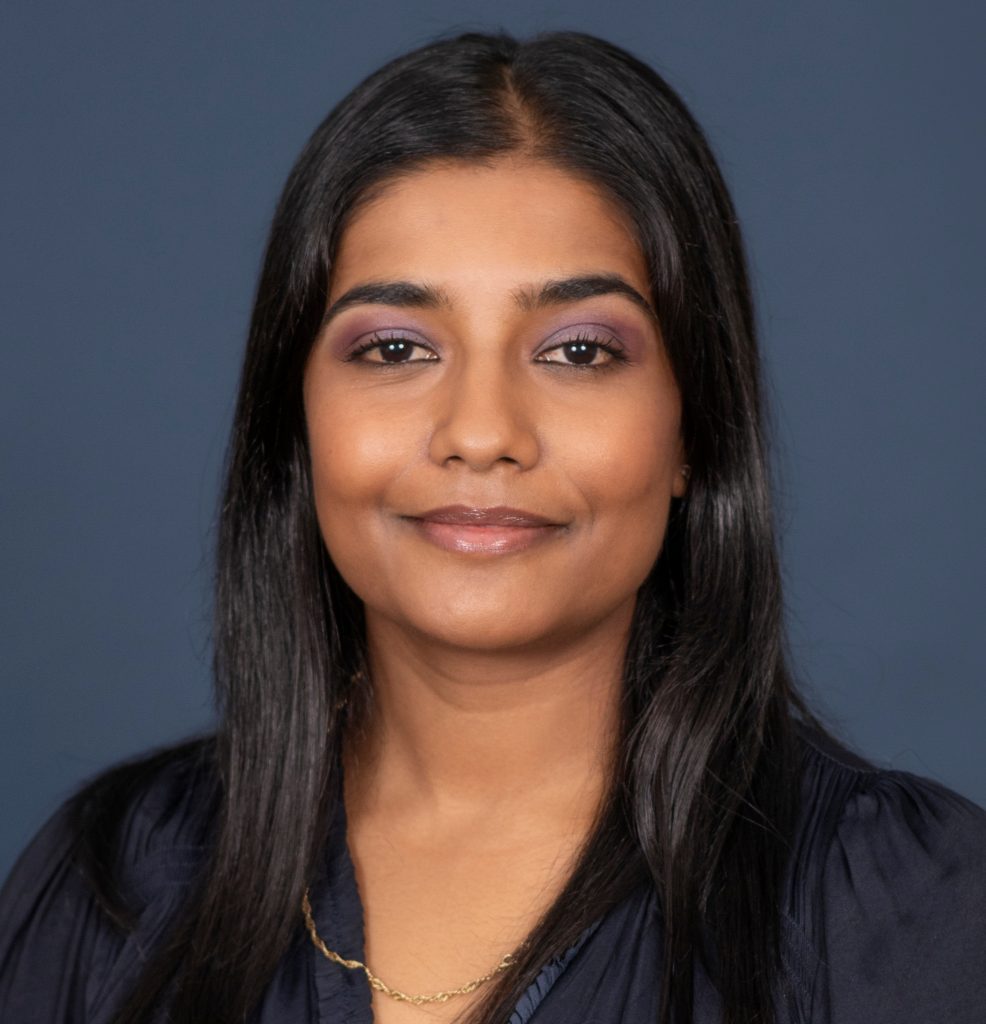This interview has been published by Anshi Mudgal and The SuperLawyer Team

With over a decade of experience, what initially drew you to a career in law, and what inspired your decision to specialize in intellectual property and trademarks?
I have always appreciated how rules and the law govern society and, from a young age, developed a strong sense of justice and fairness. What the law represents therefore resonated with me strongly and pursuing a career in law was a vocation. Of course, having parents, who deeply value education, and who have very conventional ideas of employment, made my decision to pursue law an easy one.
The decision to specialise as a trade mark practitioner I credit to Adams & Adams. My relationship with Adams & Adams predates my employment with the firm and from that first interaction I was fascinated by the intersection between intellectual property and everyday life and how trade mark practitioners must strike a balance between protecting a fair monopoly and allowing innovation and creativity to thrive. The intellectual diversity of a trade mark practice inspired my choice.
Looking back at your early years as an attorney, what key lessons or experiences shaped your current approach to trade mark law and brand protection strategies?
There are too many learnings to cite, but those with the most profound impact are:
- being accountable, which translates to taking responsibility for all aspects relating to you, including the advice provided, your professional development and knowledge, and levelling with a client when things go right or wrong; and
- shifting your mindset, so that within the legal problem you can identify opportunities for you and/or your client and add value that enhances business.
As a Partner at Adams & Adams, you handle complex, multi-jurisdictional matters. How do you balance strategic advisory, litigation, and client relationship management while leading within a large IP firm?
Being knowledgeable and confident in one’s field, keeping up to date with developments, working systematically, and developing sound knowledge of and relationships with clients have all made striking that ever-elusive balance manageable as an individual practitioner. However, I would be remiss in not acknowledging that building trust with and reliance on team mates, colleagues from other jurisdictions and my own partners in business have all positively contributed to the handling of my practice and developing and realising aspirations and achievements. The combination of my personal attributes and professional networks and support make my day-to-day rewarding and sometimes balanced.
You’ve developed extensive expertise in enforcing trade mark rights across Africa. What are the most significant legal and practical challenges you encounter, and how do you navigate them?
The diversity of the African continent is to be celebrated, but that same diversity can make enforcement in Africa challenging. Historically, many African states were subject to colonial rule by different countries that resulted in the different states adopting varied languages, including indigenous languages, and different legal frameworks and considerations. Some states have also not adopted the typical international treaties, and their own local law and practice is unique to their territory. Cultural nuances which are also varied, can play a role in the interpretation of legislation and its enforcement. To date, therefore, diversity in language, culture and legal practice affect how I practise brand enforcement from one territory to the next.
The continent still suffers from a lack of resources and infrastructure in parts which makes obtaining information relevant to enforcement difficult. This has, however, compelled me to be more liberal and innovative in strategies for enforcement.
With brands expanding rapidly into international markets, how do you approach developing cross-border IP strategies that ensure robust protection while remaining compliant with diverse regulatory frameworks?
As exciting as expanding into international markets is, it is also challenging. Crafting a cross-border strategy requires foresight and flexibility and my approach includes:
- assessing the current level of protection and any gaps in protection;
- prioritising the acquisition of protection in line with business goals and the risk to business from one territory to the next – which means understanding the target business well and collaborating closely with the IP owner;
- considering the benefits of protection afforded by international treaties and how they are treated practically in each jurisdiction and weighing that against regional and national filing systems in Africa, if applicable;
- leveraging technology to afford brand owners watching services specific to Africa with early access to publications;
- staying abreast of developments in legislation and practice in each country and considering how those affect existing rights;
- leveraging our professional networks to liaise with local attorneys, who frequently knowledge-share and assist us in understanding whether the IP in question can be protected and enforced; and
- developing and maintaining knowledge of regulatory frameworks outside of IP protection which affect the relevant business, and which dictate how we tailor the approach so that there is compliance with those regulations, too.
Could you share an example of a particularly challenging matter you handled and how you successfully resolved it?
The most challenging case that I have encountered is still ongoing. It is a matter with theoretically excellent merits in favour of the brand owner, but the matter has suffered due to archaic legal provisions and practices, unforeseen delays and external factors unique to the specific jurisdiction and outside of the control of the attorneys involved. That said, my view is that the matter will ultimately be resolved in favour of the brand owner, due to:
- flexibility in our enforcement strategy;
- reliance on astute counsel that are knowledgeable in their fields and who have never veered from their solutions-orientated approach;
- keeping alive to developments in other cases and areas of law, which aid the progression of the case;
- managing the brand owner’s expectations as we work together towards achieving the desired business goal; and
- offering high levels of client service and attention to detail, so that the brand owner can appreciate the value added even when the outlook seems bleak.
Technology is transforming IP practice worldwide. How do you see tools like AI influencing trade mark prosecution, monitoring, and enforcement in the African context?
AI is re-shaping trade mark practice globally and Africa is no exception. I anticipate that the incorporation of AI tools for purposes of conducting clearance searches, better tracking of renewals and online platform monitoring for infringement and the like will become commonplace. AI tools now available are seemingly modelled on developed, western data bases and the ease of access that they promote. In Africa, there are, of course, difficulties with legal frameworks, infrastructure and the reliability of local Registry records, which may affect the training of AI models and therefore their roll out and relevance to practice in Africa. Within that, however, seems to be an opportunity for the development of localised AI models, perhaps even by African creators and tech companies, that promise more relevance to the legal landscape in Africa.
Given your experience in advertising and IP regulatory compliance, what key trends or pitfalls should brand owners be mindful of when operating in Africa, especially with the growth of digital marketing?
Africa has cottoned on to the digital marketing boom with a surge in influencer and video-content marketing. This trend presents exciting opportunities and complex legal terrain with many countries in Africa relying on outdated legislation and enforcement mechanisms, or not having legislation that regulates, for instance, influencer marketing. This means resorting to traditional legal remedies and forums to address advertising concerns, which is not ideal. However, there is an increasing trend of awareness about the IP challenges arising from digital marketing and many countries are making good progress in adapting their legal frameworks to better deal with these challenges. For instance, South Africa’s Code of Advertising Practice now includes a Social Media code and there is a direct link for communicating decisions from the Advertising Regulatory Board to Meta. In addition, Nigeria recently revamped its copyright legislation and founded an Advertising Regulatory Council to deal with advertising complaints. There has also been an uptick in the promulgation of data privacy legislation in many African states and cases before African regulators and courts dealing with privacy and personality rights infringements arising from digital marketing. These developments are testament, in my view, to African awareness of the need for sound regulatory frameworks and treatment of digital advertising and related regulatory concerns.
As a partner in one of Africa’s leading IP firms, what leadership principles guide your work? What advice would you give aspiring IP practitioners who want to build a successful career in this specialized field, particularly in Africa?
The leadership principles enshrined in the core values of Adams & Adams are those which I live by, personally and professionally. Of particular importance to me are the values of Constant Improvement, Integrity and Ethics, People-centriticty, Teamwork and Respect and Innovation.
My advice for aspiring trade mark practitioners is to realise that ambition by growing and showing interest and knowledge in new developments in or relevant to IP law and aligning with like-minded individuals already in the legal fraternity, who can mentor you and lead you towards pursuing a career in the field.
Looking ahead, where do you see the greatest opportunities and challenges for brand owners in Africa over the next decade, and how do you foresee trademark enforcement evolving with economic integration and technological advancements?
With the lack of legacy wealth and infrastructure in Africa, it seems that digitally and technologically aware natives will drive business trends and move business further away from traditional models to allow greater access to and awareness of their brands on a more global scale via, for instance, mobile-first ecommerce sites. With the advent of the African Continental Free Trade Area, which creates access to a unified market in Africa with reduced tariffs, it is expected that there will be a boost in cross-border brand expansion on the continent and promotion for African brand loyalty. These two developments present great opportunities for Africans and brand owners generally, but the advent of new technologies and a unified market also imply a surge in trade mark violations and ease of access to goods that may infringe legally protected IP. Enforcement strategies will be dictated to by these developments, and it is foreseeable that brand owners will need to re-prioritise protection for trade marks in countries not otherwise considered a high priority. It is also expected that policy makers will exert further pressure on governments to introduce legislation that conforms to the trends in business and caters for unconventional infringements. In the meantime, and until the law catches up with trends in commerce and technology, attorneys and adjudicators will need to be innovative in their interpretation and the implementation of existing legal frameworks in resolving disputes.
Get in touch with Kim Rampersadh –




